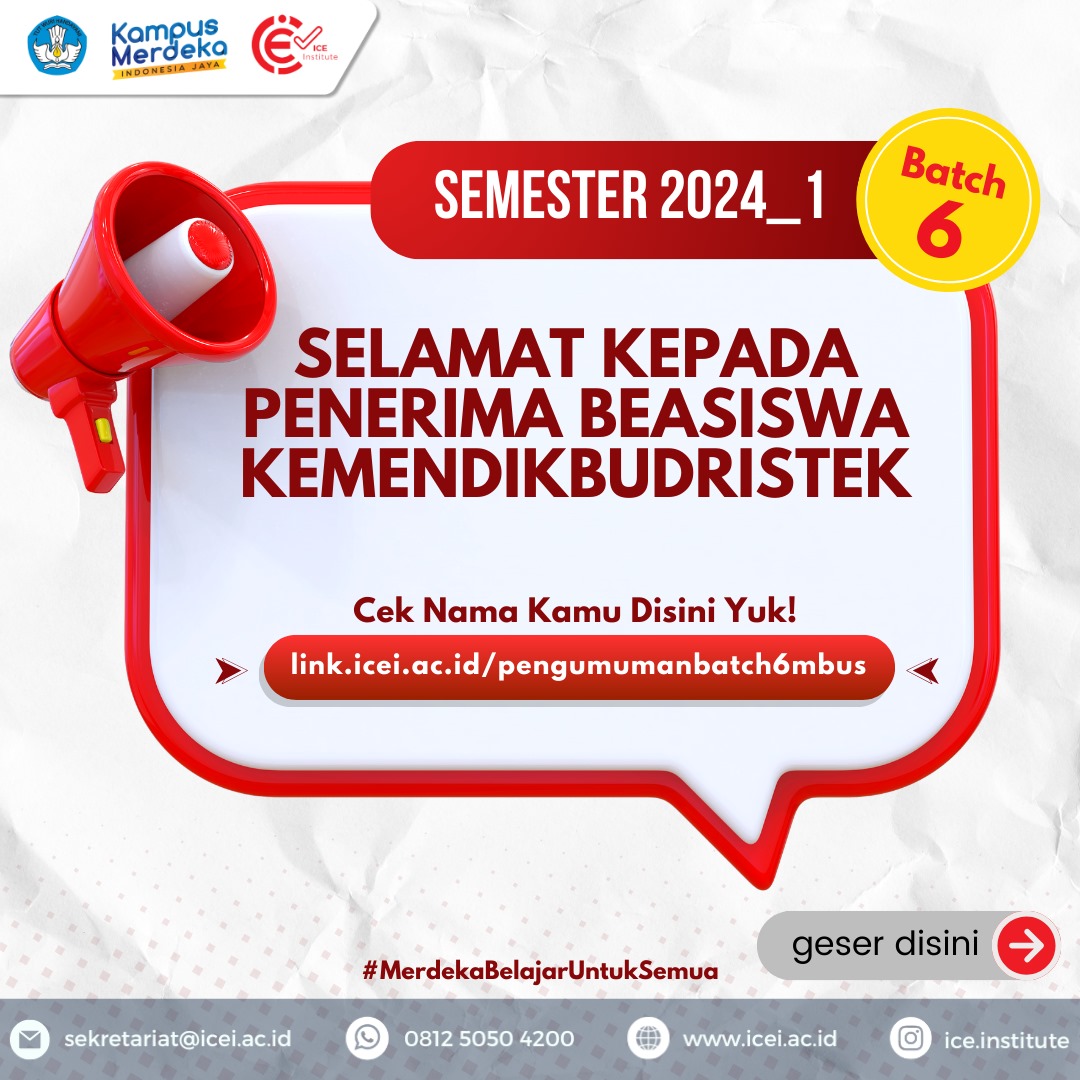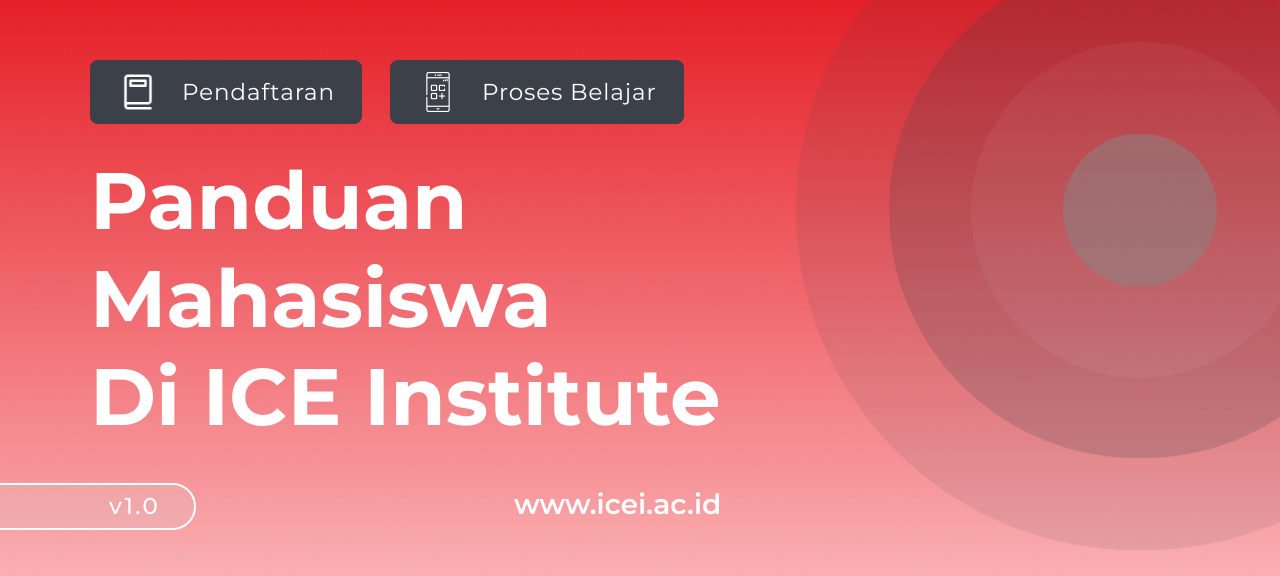

https://info.icei.ac.id/sea-regional-high-level-policy-dialogue-was-held-in-jakarta
On the 25th of April, 2024, Jakarta, Indonesia, Southeast Asia Regional High-Level Policy Dialogue themed “Leading Effective Integration of GenAI in Higher Education” was co-organised by the Indonesia Cyber Education Institute (ICE-I, IIOE Indonesia National Centre), the International Centre for Higher Education Innovation under the auspices of UNESCO (UNESCO-ICHEI), UNESCO Regional Offices in Bangkok and Jakarta, with the support from Southeast Asian Ministers of Education Organisation (SEAMEO) Secretariat and Association of Southeast Asian Nations (ASEAN) Secretariat. This event was sponsored by the Asia Development Bank (ADB) and WPS Software PTE. LTD., showcasing a collaborative effort towards advancing GenAI integration into higher education across the region. Nearly 200 higher education leaders and stakeholders from China, Indonesia, Malaysia, Philippines, Thailand, Cambodia, Myanmar, and Viet Nam participated in the conference both online and offline.

The policy dialogue was structured into three thematic sessions: "Leadership Transformation and Policies at the National and Institutional Levels for GenAI", "Teaching and Learning in the Age of GenAI and Teachers' Professional Development", and "Partnerships for Supporting GenAI Integration in Higher Education". These sessions facilitated in-depth discussions on a range of topics, including strategies for the responsible utilisation of AI in higher education, overcoming challenges in AI application, initiatives for AI integration, levering International Institute of Online Education (IIOE) micro-certification to upskill higher education educators, forging strategic partnerships, and developing technical solutions for Higher Education Institutions (HEIs).
The event brought together key stakeholders from the higher education sector in Southeast Asia, including senior officials from ministries responsible for higher education, presidents and vice-chancellors of HEIs, and representatives from enterprises and international organisations. The high-level dialogue was instrumental in promoting constructive exchanges, consolidating best practices, establishing a policy dialogue mechanism, and offering recommendations to higher education stakeholders in the region. The dialogue is conducive to facilitating the sharing of international resources and local innovation experiences, and jointly fostering a new ecology for the transformation of higher education in the GenAI era.
The dialogue pursued multiple objectives, including establishing a regional policy dialogue and exchange mechanism among higher education stakeholders in Southeast Asia. It also aims to address the complexities of integrating GenAI into higher education, offering tailored references and exemplary cases for policymakers, administrators, and teaching personnel in the Southeast Asian context. Furthermore, the dialogue will unveil a collaborative action plan crafted by stakeholders and partner HEIs, emphasising leadership enhancement and professional development for teaching personnel. In addition, a demo of the "Co-Design Engaging Courses with Generative AI" course was presented during the conference, which will be the first course on the IIOE platform on the use of GenAI in teaching and learning.

Opening Ceremony
On the morning of 25 April, the opening ceremony was hosted by Dr. Astri Dwi Jayanti Suhandoko, Assistant Professor, Master Program of Primary Education, Universitas Terbuka (Indonesia Open University). Prof. Dr. rer.nat. Abdul Haris, Director General of Higher Education, Research, and Technology, Ministry of Education, Culture, Research, and Technology, Indonesia, said that the objective of the event was to create a platform for regional stakeholders in higher education across Southeast Asian countries to discuss and find solutions for the responsible and efficient utilisation of AI in higher education. Prof. WANG Libing, Chief of Section for Educational Innovation and Skills Development (EISD), UNESCO Bangkok Office, emphasised the role of HEIs in equipping teaching personnel with AI skills while upholding academic integrity and ethical standards. Multilateral collaboration is essential for unlocking opportunities in research and education. Dr. Roger Y. CHAO Jr., Asst. Director/Head of Education, Youth and Sports division, Association of Southeast Asian Nations (ASEAN) Secretariat, pointed out that integrating AI into education requires a holistic approach considering its broader implications on society and economy. Educational policies and strategies should align with national and regional development plans, including SDGs. Prof. JIN Li, Director of UNESCO-ICHEI, Vice President of Southern University of Science and Technology, China, highlighted the event's goal of establishing a robust policy dialogue and exchange mechanism for multi-stakeholders in Southeast Asia. The focus is also on addressing the complexities and opportunities of integrating GenAI into higher education, tailored to the unique contexts of Southeast Asian nations. UNESCO-ICHEI plans to utilise IIOE micro-certification to enhance teaching personnel's digital competency and AI literacy, and support HEIs in achieving their innovation strategies for higher education at the institutional and national levels in the Gen AI era.


Keynote Speeches
Prof. CHAN T. Basaruddin, Member of Executive Board of the National Accreditation Agency for Higher Education, stated that it is crucial to ensure faculty readiness for GenAI through mindset development, competency enhancement, and pedagogical changes, alongside establishing robust regulatory frameworks. Dr. Sungsup RA, Visiting Professor at Korean Development Institute, Former Deputy Director General of Asian Development Bank (ADB) introduced the increasing investment of ABD in higher education projects and R&D innovation in the Indonesian higher education system. Mr. WANG Jianing, Director of WPS Office Product Ecosystem Partnership, WPS Software PTE. LTD., (WPS), highlighted the university-enterprise cooperation through the case of WPS and UNESCO-ICHEI. WPS provides exclusive courses and training for the IIOE platform, benefiting 724 students from 72 countries and regions. Dr. Said Mirza Pahlevi, Data Science Manager, Ministry of Communication and Informatics (MCI), Indonesia, suggested that MCIs are crucial in bridging this digital talent shortage by customising training programmes for lecturers and HEI leaders.

Session 1: Leadership transformation and policies at national and institutional levels for GenAI
Session 1 was hosted by Prof. LIM Cher Ping, Chief Expert of the International Institute of Online Education (IIOE), UNESCO-ICHEI, Chair Professor of Learning Technologies and Innovation at the Education University of Hong Kong, China. Dr. Po Kimtho, Director General of the Institute of Technology of Cambodia (ITC) discussed challenges in universities' adoption of AI in Cambodia. Hence, the ITC strategy should encompass curriculum upgrades, enhanced institutional capacity, and infrastructure investments. Dr. Nurfadhlina Mohd Sharef, Associate Professor at Universiti Putra Malaysia, presented UPM's solutions for advancing AI integration in higher education, including the AI Change Management for UPM Framework aimed at enhancing teachers' AI literacy, as well as institutional governance through the establishment of policies, guidelines, and responsible AI implementation practices. Dr. Amich Alhumami, Director of Religion, Education and Culture, Ministry of National Development Planning, Indonesia, emphasised that strategies should focus on standards for ethics, AI talent development, and conducting research and innovation in the Al Industry. Dr. Nu Nu Yi, Pro-Rector of Yangon University of Distance Education, Myanmar, introduced the pivotal role of university leaders in shaping higher education during the AI era, emphasising the need for clear visions, strategic resource allocation, and collaborative partnerships within institutions. Ms. BI Xiaohan, Deputy Director, UNESCO-ICHEI, introduced the collaboration between UNESCO-ICHEI and Southeast Asian HEIs to launch and implement the "IIOE Micro-certification for Higher Education Teaching Personnel Project." This initiative aims to equip teachers, administrators, and leaders with digital competencies to effectively utilise GenAI for enhancing teaching, management, and leadership in higher education.

In the roundtable discussion session, four experts shared their insights concerning prospects and pitfalls of integrating GenAI technologies in higher education. Mr. Mak Ngoy, Director General of Higher Education, Ministry of Education, Youth and Sport, Cambodia, highlighted the crucial role played by GenAI in Teachers' Professional Development (TPD) and infrastructural construction. Prof. Dato. Ts. Dr. Norazah Mohd Nordin, Deputy Vice-Chancellor of UKM, Malaysia, shared significant Malaysian experiences in GenAI application, assessment and guidelines both in the academic and non-academic sector. Dr. CHAWIN Chantharasenawong, Vice President of King Mongkut's University of Technology Thonburi, Thailand, shared the latest university initiative on drafting a policy guideline for the responsible use of AI, which included several key notions such as the ethics of AI in academic research, data privacy and TPD strategies. Dr. Carl Michael F. Odulio, Vice-Chancellor of the University of the Philippines, Diliman, pointed out the University personnel's ambivalence in utilising AI and called for proper information dissemination training.


Session 2: Teaching and learning in the age of GenAI and Teachers' Professional Development
Session 2 was hosted by Mr. Jeffrey Jian XU, Education Practice, Human and Social Development Sector, ADB. Prof. Cecilia CHAN, Director of the Teaching and Learning Innovation Centre, Hong Kong University (HKU), China, showcased the practical efforts of HKU in providing a range of policies, guidelines and technical support to enhance AI literacy and professional development of teaching personnel in the AI era. Mr. Kevin Marbun, Head of Quality Assurance Team, Directorate of Learning and Student Affairs, Ministry of Education, Culture, Research, and Technology, Indonesia, introduced education policies in Indonesia and strategic priority projects in the national medium-term development plan for 2020-2024 (RPJMN). For Indonesian HEIs, the use of Al is important to facilitate the implementation of quality MOOCs. Mr. SIT Fung, Chief of IIOE, UNESCO-ICHEI, shared IIOE’s overall strategy and initiatives to accelerate integration between AI and education, including IIOE 1+X GenAI Literacy Programme, IIOE V3.0 – iTA, Smart Classroom Project, and IIOE AI Lab. Dr. Melinda dela Pena Bandalaria, Chancellor of the University of the Philippines Open University, Philippines, presented a proactive approach of the university to enhance teaching and learning outcomes, along with redesigning assessments to suit the utilisation of AI tools. Dr. Supatida Prompayuck, CEO of the S Curve Company; Expert Committee Member, Commission on Higher Education Standards, Ministry of Higher Education Science Research and Innovation, Thailand, highlighted the necessity for teaching personnel to upskill to harness AI's potential, putting pedagogy first, fostering collaboration, and addressing equity and accessibility.


In the roundtable discussion session, six experts shared initiatives and projects at the national or institutional level to enhance teaching and learning. Dr. Sean McMINN, Director of the Center for Education Innovation, Hong Kong University of Science and Technology, China, highlighted AI literacy for students, faculty AI readiness, and improved regional collaboration through AI governance at the institution and government scenarios. Dr. Husaina Banu Kenayathulla, Associate Professor, Department of Educational Management, Planning and Policy, University of Malaya, Malaysia, shared the AI Literacy Programme for Everyone initiated by the Malaysian government and guidelines for students to use ChatGPT at the institutional level. Dr. Nur Afny Catur Andryani, Associate Professor, AI Data Science Enthusiasts Department, Bina Nusantara University, Indonesia, recognised the immense potential of AI and elaborated on her insights regarding the AI blueprint designed to facilitate AI integration in higher education. Mr. Marc Lepage, Principal IT Specialist (Technology Innovation), ADB, shared their initiatives under the umbrella term "digital leadership", linking climate change with innovative teaching at the university. Mr. Joe ZHOU, Southeast Asia Director of MAXHUB/Seewo, introduced Seewo's Industrial Solutions, concentrating on the development of digital terminals, primarily Interactive Blackboards, which aim at data collection, advancing GenAI, and enhancing public accessibility. Prof. Hong T.M. Bui, Director of Research, Innovation & Enterprise and Professor of Business Education at Birmingham City Business School, emphasised the importance of not only advancing technology but also enhancing teaching personnel' AI competencies, exemplified by her recent project.

Session 3: Partnerships for supporting GenAI integration in higher education
Session 3 was hosted by Dr. Gatot F. Hertono, Faculty of Mathematics and Natural Sciences, University of Indonesia, Indonesia. Mr. Uuf Brajawidagda, Act. Director of Partnership and Alignment, Directorate General of Vocational Education, Ministry of Education, Culture, Research, and Technology, Indonesia, stressed the university-enterprises partnership for GenAI solutions in higher education through vocational education case study. Indonesia needs to prompt HEIs to reassess and prepare for the emerging skills and critical occupations related to GenAI. Dr. Romyen Kosaikanont, Director, SEAMEO Regional Centre for Higher Education and Development, introduced that SEAMEO has established a Working Group on AI to support 11 countries in developing policies and capacity building for AI integration in education and strengthened partnerships for the co-creation of the AI ecosystem. Ms. Ivy SHI, CEO of Learnmonade, stated that Learnmonade aims to empower teachers, including female educators, to utilise AI technology effectively, thereby alleviating apprehensions about AI and fostering creativity. Ms. WANG Jing, Deputy Director of Learning Mall, Xi'an Jiaotong-Liverpool University (XJTLU), presented XJTLU's initiative to embrace AI, EdTech Provision for the university community, the innovation of Learning Mall, and the collaboration with IIOE to develop AI Literacy Micro-Certification. Mr. Teguh Prasandy, Lecturer of Information Systems, Bina Nusantara University, showcased an action plan on building digital competencies of Indonesian higher education teaching personnel based on the work from IIOE Higher Education Teaching Personnel Digital Competency Reference Framework in collaboration with UNESCO Bangkok and UNESCO-ICHEI. This plan will kick-start more activities facilitating the upskilling of the higher education workforce.


In the roundtable discussion session, four experts shared their insights concerning promoting the partnership for supporting GenAI integration in higher education. Firstly, Mr. Zakki Gunawan, Programme Officer at UNESCO Jakarta Office, introduced a UNESCO initiative, "Indonesian Digital Transformation Multi-Stakeholders Partnership", focusing on youth empowerment in the digital ecosystem. Subsequently, Mr. Haemiwan Fathony, Research Fellow at Indonesia Cyber Education Institute (ICE-I), pointed out the significance of addressing "the fear for AI" and called for more regional collaborations in the region. Dr. Joon Nak CHOI emphasised the importance of fostering critical thinking, learning, and analytical skills of students in the AI era, citing HKUST's AI grading project as an illustrative example. Finally, Mr. Byeong Jo Kong, Digital Technology Specialist at Asian Development Bank, put emphasis on structural strategy, collaboration, and human feedback in AI design, concluding with future actions to establish a high-quality data foundation and a customised knowledge space.


Side Exhibitions by EdTech Enterprises
The Dialogue saw enthusiastic participation from over 10 high-tech enterprises involved with GenAI, including WPS Software PTE. LTD., Learnmonade, Seewo, OS-easy, JIQU, Microsoft, Amazon Web Services (AWS), and Google, which set up booths outside the event venue. They presented solutions and the application of GenAI in education. Exhibiting companies engaged in extensive interactions with attendees, presenting comprehensive GenAI+ education solutions.

Closing Remarks
As the conference drew to a close, four distinguished speakers offered insightful closing remarks. Prof. LIM Cher Ping highlighted the critical nature of sharing practices and lessons learned across institutions and nations to adopt a holistic approach to the integration of AI in higher education, including curriculum reform, capacity building, and advocated learning to learn with AI. Shared best practices and recommendations and relevant output from this dialogue will be included in the regional recommendations for upskilling the higher education workforce. Mr. Vishal Potluri, Project Specialist, Education Practice, Human and Social Development Sector, ADB, underscored the essential role of public and private partnerships in developing AI infrastructure for education. Dr. Rahayu Dwi Riyanti, Director of Indonesia Cyber Education Institute, expressed gratitude to the attendees for their dedication and commitment to exploring the integration of AI in higher education and called for collaborative efforts to fully realise AI's transformative potential. Dr. Muhammad Yunus, Vice Rector for Academic Affairs, Universitas Terbuka (Indonesia Open University), reflected on the valuable insights from the policy dialogue, emphasising the impact of AI on pedagogies, and advocated collective action to further enhance teaching, learning, and institutional management in the age of AI.

The policy dialogue represents a significant endeavour by the partners of UNESCO-ICHEI in Southeast Asian countries. It is a testament to the collective aspiration to foster responsible integration and innovative solutions within the higher education landscape and to continuously enhance the IIOE ecosystem. Moving forward, UNESCO-ICHEI will strengthen collaboration with HEIs and government departments in Southeast Asia, leveraging the IIOE micro-certification programme to facilitate the digital transformation of higher education and enhance reskilling and upskilling teaching personnel across the region.
.Total Entries
Total Entries
Total Entries
Unduhan Dokument
Anda dapat mengunduh dokument panduan terkait ICE Insitute

Dengan cara mengklik
Unduh


2024 © ICE Institute. All rights reserved.